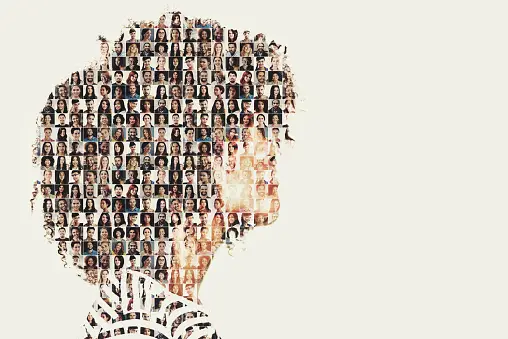Dr. Debbie Bayntun-Lees – Professor of Organisational Development & Leadership at Hult International Business School
The complexity of leadership power dynamics
Leadership power is the influence that leaders exert over their followers, rallying support for their initiatives and securing compliance with their directives. The intricate interplay of leadership power dynamics holds profound implications for workplace culture, employee motivation, and overall performance.
Effective leadership requires not only acknowledging power but also employing it with care and thoughtfulness. Leaders who can master this delicate dance positively influence their employees and colleagues, contributing to the overall success of the organization. However, how leaders use power effectively is a complex matter, demanding a nuanced understanding of its implications.
The truth is that many women grapple with recognizing themselves as powerful leaders. Leadership is an art of influence, guiding individuals toward greater accomplishments through the effective use of power. Frequently, women tend to associate power with manipulation or control, leading them to distance themselves from that type of leadership. Instead, they often embrace terms like ‘effective’ and ‘influential.’
Power, in its essence, is neither inherently good nor bad—it is the manner in which power is wielded that determines its ethics and impact. Our research used avatars to dive into the crucial question of how women can cultivate a positive relationship with their own power.
So, can the medium of avatars in a VR environment help women learn to appreciate the value of relational power in the workplace?
Harnessing Avatars to Probe Power Dynamics
Participating in a Women’s Leadership Program, female leaders engaged in a virtual session, assuming the identity of avatars within a confidential virtual reality realm. Leveraging innovative virtual reality technology, they crafted personal scenarios and underwent a guided reflective process to explore and gain insights into their personal power and voice within their professional spheres.
Post-exercise, participants engaged in guided reflection, journaling, and shared their experiences within small breakout groups. The research collected data from 70 women through an online survey and in-depth exploration in seven online discussion groups, aiming to unravel the impact of this experiential learning on their perspectives and actions in the world.
Transformational Learning: Paving the Way for Positive Change
Respondents overwhelmingly acknowledged the value of the avatar session in providing a dedicated space for reflection and in-depth analysis of work-related challenges. In particular they reported that the experience was beneficial when it came to:
- Shifting perceptions of power: Avatars can serve as catalysts for shifting perspectives and instigating behavioral changes concerning how women perceive and wield power in the workplace. This immersive experience allowed leaders to gain a multidimensional understanding of their power, prompting a reframing of their view of ‘power’ in a more positive light.
- Elevating Self-Awareness. The amalgamation of survey and focus group data underscored heightened levels of self-awareness among participants. This increased awareness of personal responsibilities for workplace challenges empowered these leaders to generate solutions and make tangible progress in their respective professional spheres. As one participant put it: “I feel more empowered…I was not aware that others may perceive me as a threat to them, or maybe a bit afraid of me (someone told me this). So yes, I feel empowered, but I also have to be aware of their and my position, I do not want to endanger them, so I must pay attention to how I behave and use my power”.
- Heightening Empathy: The study’s findings suggested that virtual worlds, particularly those using avatars, effectively foster empathy and perspective-taking skills. Avatars in the ProReal virtual landscape empowered participants to recreate work situations, enabling guided exploration and encouraging the examination of challenges from diverse perspectives.
The outcome was an increase in empathy, with participants expressing a deeper understanding of their team’s dynamics and challenges. One participant relayed how seeing things through other people’s eyes has made her more empathetic with her team: “It can be frustrating when people in my team are not achieving the dates we have set for example, for delivering a report. Then I am trying to guess what has been happening this week and so on. I would often imagine there is no explanation…so there was no empathy. Now I find out and try to see all the things that are going on, and if they have all the information they need.”
Avatars – an innovative medium for organizations
Our research not only affirms the potential of avatars in virtual reality as a tool for learning but also positions them as an innovative medium for female leaders.
This platform provides a unique opportunity for women to gain a nuanced understanding of their power dynamics and navigate the delicate balance between power and effective leadership.
Consequently, it make sense for organizations to create strategic opportunities for all leaders – but in particular women – to refine their power dynamics, harnessing the opportunities afforded by these kinds of technologies.

